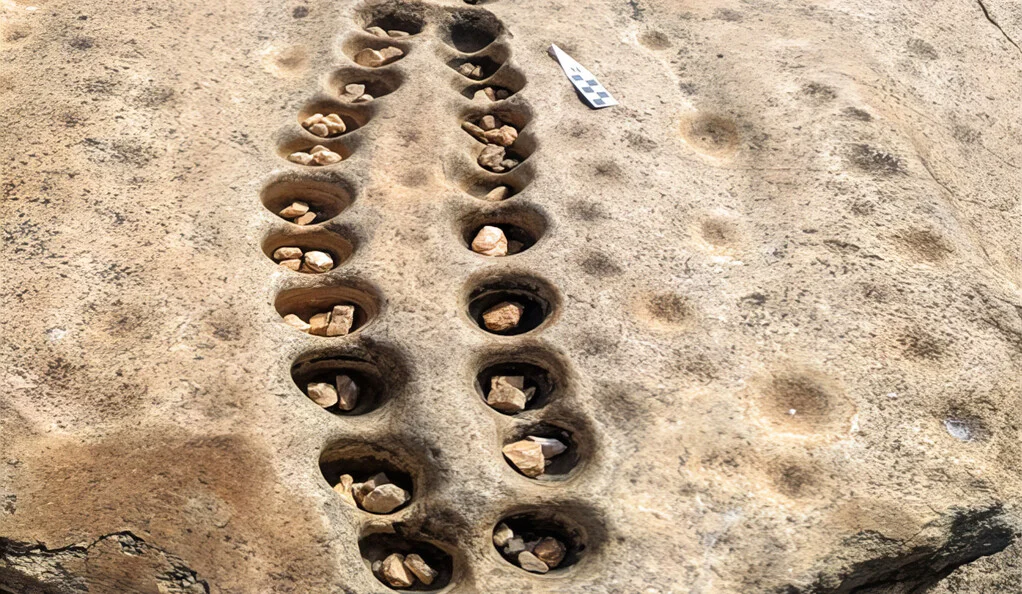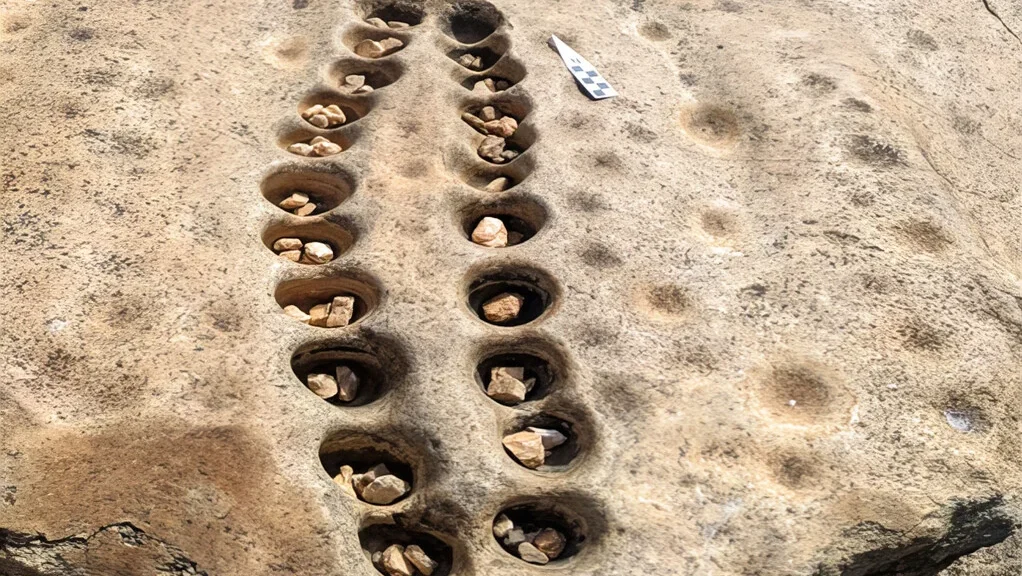“Arcade” of ancient mancala game boards found in Kenya
Veronica Waweru, an archaeologist from Yale University, has discovered an “arcade” of rock-cut mancala game boards in Kenya’s highlands.

Mancala, meaning “to move”, is a turn-based strategy game where the objective is to capture more gaming pieces than the opponent.
Early variations of the game have been found in Aksumite settlements throughout parts of Eastern Africa from the 8th century AD, in addition to sites from Ancient Egypt and the Roman Period.
According to the Savannah African Art Museum, the earliest example of a mancala board dates to between 5870 ± 240 BC, which was found at the Neolithic site of ʿAin Ghazal in Jordan.
The recent discovery was made following a tip-off about tourists removing prehistoric hand axes from a site within a private wildlife conservancy.
Upon investigating further, Waweru discovered an “arcade” of ancient mancala game boards carved directly into a rock ledge.
Determining the age of the game boards proves challenging since they are carved into rocks that are 400 million years old and lack any organic material suitable for dating.
Waweru said: “It’s a valley full of these game boards like an ancient arcade. Given the erosion of some of the boards, I believe that people were playing games there a very long time ago.”
Waweru also notes that the site contains 19 burial cairns built by herding communities that inhabited the region 5,000 years ago.
Moreover, there are indications of knife sharpening on the rock surface around the game boards, implying that these individuals likely engaged in feasting and butchery activities onsite.
Waweru and her research team have applied for funding to further study the site, which is located along the equator in Kenya’s central highlands.
